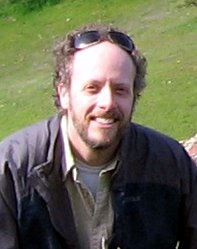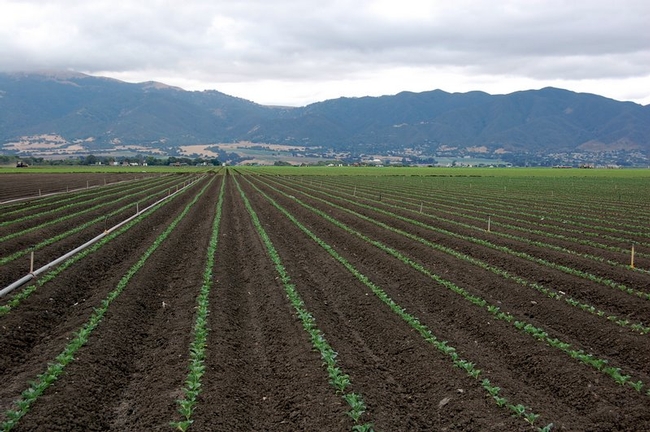While working in Tanzania on community development projects several years ago, Iago Lowe came to a life-changing conclusion:
Food security is central to projects that make a lasting difference in people's well-being. It ensures that communities have the seeds, soil, water and environment to produce enough to eat.
However, his bachelor's degree in physics and religion from Dartmouth College did not adequately prepare him to spearhead those kinds of projects.

To address that gap in his ability to "make some small difference in the world," Lowe started doctoral studies at UC Davis in 2007 in plant breeding and genetics.
"There are so many needs in developing nations — for schools, roads, water, other infrastructure — but when the money and people leave, so often the projects die," said Lowe, who completed his Ph.D. in Plant Breeding and Genetics at UC Davis in 2011. "The few projects I saw that continued to thrive, that really made a tangible difference in people's lives, almost always dealt with local food security, seed systems, soil and water conservation and ecological restoration — projects that demanded a set of skills I didn't have. After studying plant breeding at UC Davis and that's no longer the case."
Lowe exemplifies a new breed of plant breeders at UC Davis. Long a global leader in plant breeding, UC Davis has been retooling its programs — offering new training, creating new curriculum, hiring new faculty (as the budget allows) and conducting world-class research to meet a growing demand for new crops and for breeders.
The new generation of scientists that those programs will produce — and their research breakthroughs — can't come soon enough for industry, government and philanthropic foundation leaders who say that a shortage of plant breeders is hampering efforts to alleviate hunger around the world. Hundreds of high-paying industry jobs for plant breeders are going unfilled.
“Plant breeding is such a vital tool for helping us deal with significant challenges in the 21st century such as food security, population increase, urbanization, and water and energy shortages," said Xingping Zhang, a watermelon breeder with the Davis-based seed company Syngenta. "Who is going to educate the plant breeders? UC Davis is in a perfect position to do so because it's a great center of science and technological inventions, located right in the heart of agricultural abundance. No place in the world offers the diversity of crops [like those] grown in California."

In another major nod to UC Davis expertise, the U.S. Department of Agriculture awarded $40 million in grants earlier in 2011 to develop climate-change-tolerant plants and new bioenergy sources. UC Davis scientists will lead two research teams from more than 50 universities in more than 20 states.
"Each of these projects features transdisciplinary, regional, integrated teams, including scientists from institutions that represent underserved populations," said Roger Beachy, director of the USDA's National Institute of Food and Agriculture, in announcing the grants at UC Davis. "This approach represents a new paradigm in how USDA science can best solve critical issues facing agriculture today."
You can read more about the history and future of plant breeding at UC Davis in this article in the UC Davis Magazine.
Learn more:
UC Davis plant breeding education
Story on UC Davis Department of Plant Sciences website
Seed Biotechnology Center videos on plant breeding